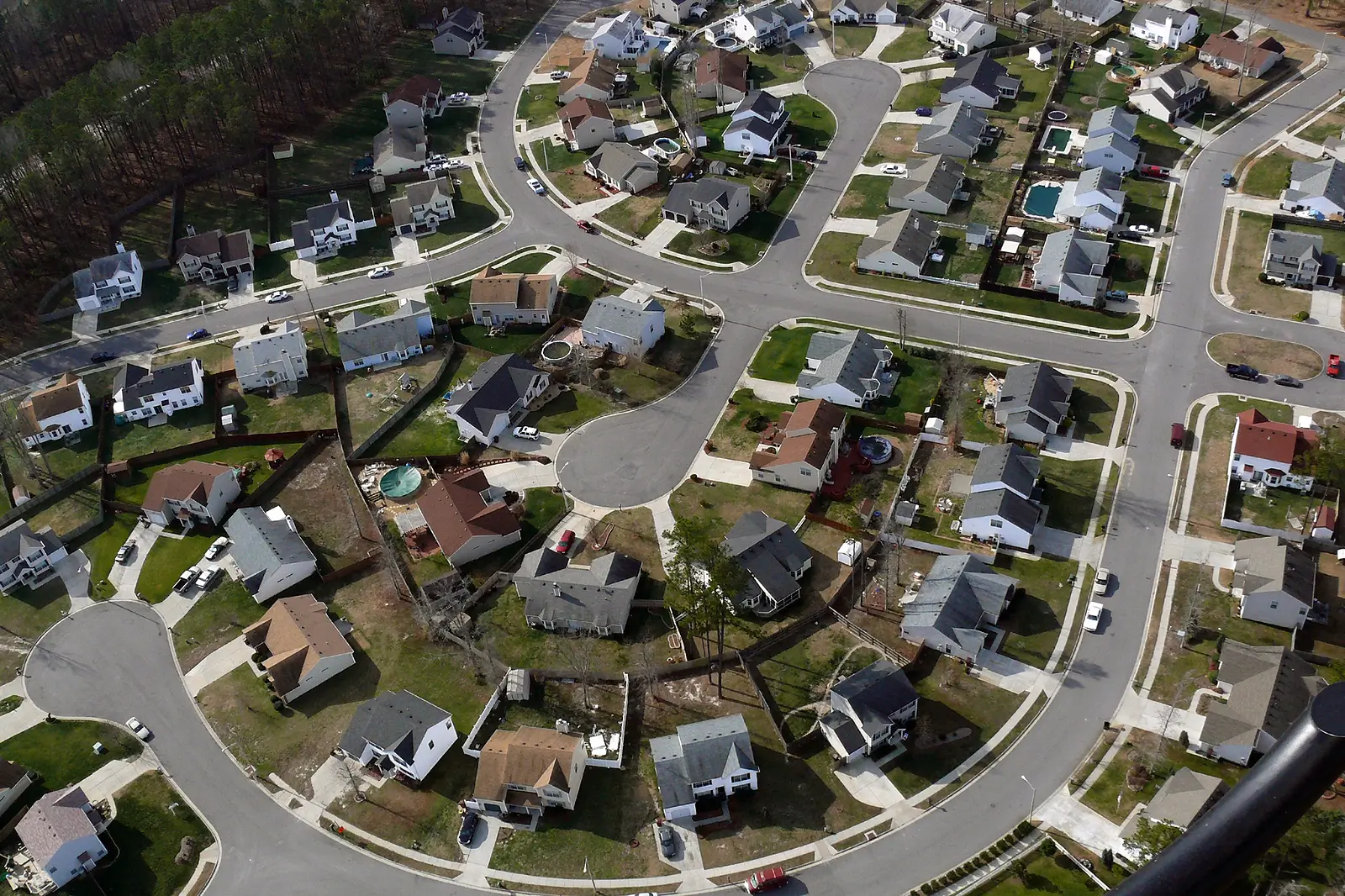Introduction to the Area
Chesterfield County is more than just a Richmond, Virginia, suburb. It's a vibrant neighborhood with consistent growth, high market value, and rising demand for both rental and for-sale real estate. Chesterfield's real estate market is fueled by the fact that most people find it to be a desirable location for those seeking a balance between suburban living and city access.
Chesterfield's location makes it one of the best places to look in Virginia, regardless of your level of experience as an investor or your desire to increase your holdings.
Key Takeaways:
- Chesterfield County offers a mix of affordable and luxury properties, appealing to a wide range of buyers and renters.
- The market shows steady appreciation and strong rental demand, ensuring income opportunities.
- With the correct property management and finance strategy, investors can maximize returns and reduce risks.
Why Chesterfield County Appeals to Investors
In real estate, location is crucial, and Chesterfield is a prime example. The county, located just outside Richmond, Virginia, offers its citizens the tranquil charm of suburban communities along with easy access to the city. Chesterfield is easily connected to neighboring centers like Fredericksburg and Northern Virginia by major highways.
The county’s steady growth, paired with its strong economy and low unemployment, makes it a reliable choice for real estate investors. For consumers personal to the area, Chesterfield offers variety: buyers can find homes ranging from affordable starter properties to large estates.
Understanding the Market Value
The Chesterfield market has shown consistent appreciation, with properties often deemed reliable investments due to their resale potential. While exact price points vary depending on home type, location, and improvements, the average asking price is around $300,000. Properties that have undergone renovation or new construction projects often sell for much higher.
Investors searching MLS listings will see a range of options, from single-family homes to townhouses and condos. Homes with modern updates, quality images, and appealing neighborhoods typically sell quickly. This means sellers benefit from a strong market, and buyers should act fast when they see the right sign pop up.
Types of Properties Worth Considering
When it comes to Chesterfield real estate, variety is part of the appeal. Investors can choose from:
- Single-family homes: The most common home type, appealing to families and long-term tenants.
- Condos and townhouses: Often easier to maintain and affordable for first-time buyers.
- Apartments or multi-family units: Ideal for generating income from multiple tenants at once.
- Renovation projects: For those interested in flipping, older properties in need of improvements can deliver strong results when sold.
With such diversity, investors can align their purchasing decisions with budget and goals, whether that’s buy-and-hold income properties, a flip project, or longer-term appreciation.
Rental Properties and Steady Income
Chesterfield has a high demand for rental properties, thanks to its mix of students, young professionals, and families. Most people renting in the county look for homes with two to three beds, updated kitchens, and appealing neighborhoods.
On average, rental income ranges from $1,000 to $2,000 per month, depending on size, location, and condition. With the right property management strategy, investors can reduce vacancies and save on unnecessary costs. Effective management ensures tenants pay on time, properties stay maintained, and investors see guaranteed results from their rentals.
Property Management Considerations
Managing properties in Chesterfield requires time, effort, and local knowledge. You’ll need to handle tenants, pay for routine maintenance, and respond quickly to repair requests. Many investors partner with professionals or an LLC specializing in property management to reduce risks and streamline operations.
Working with trusted professionals means you get access to non-commercial vendors, guaranteed maintenance standards, and help with project improvements. This is especially helpful for out-of-state investors or anyone balancing multiple properties.
Smart Investment Strategies
There’s no one-size-fits-all in real estate. Investors in Chesterfield, VA often choose from:
- Buy-and-hold: Hold properties for long-term appreciation while earning rental income.
- Fix-and-flip: Buy at a lower price, invest in renovation, and sell for profit.
- Wholesale investing: Find homes below market, secure them, then sell the contract to another buyer.
Each strategy comes with risks and rewards. For example, construction and renovation projects may take more time and capital but can yield substantial returns. On the other hand, buy-and-hold options generate stable income with less stress once tenants are secured.
Financing and Tax Considerations
Investors have plenty of financing options available, including traditional mortgages, hard money loans, or private lending. The key is choosing the option that fits your goals and reduces overall costs.
Property taxes in Chesterfield, VA, are competitive compared to other Virginia locations, but like all investments, buyers should account for taxes, insurance, and fees. Investors can reduce liability with tax deductions on mortgage interest, property taxes, and depreciation. Proper planning ensures you keep more of your income while building equity.
Risks and Challenges to Keep in Mind
While Chesterfield offers plenty of opportunity, every investment carries risks. Market fluctuations, vacancies, and unexpected repairs can impact income. That’s why it’s smart to diversify your portfolio, keep a portion of funds saved for emergency costs, and partner with property management professionals who know the market inside and out.
Future Outlook for Chesterfield Investments
Chesterfield’s outlook remains strong. With its location near Richmond, attractive neighborhoods, and ongoing demand, it’s a sign that the market will remain favorable for both buyers and sellers. Properties continue to be sold at steady rates, and new construction adds more options to MLS listings.
Investors interested in Chesterfield real estate can feel confident that the county will deliver consistent results, whether through appreciation, rental income, or future improvements.
Should You Invest in Chesterfield?
The answer is yes, Chesterfield, VA, is a strong target for real estate investment. With its growing population, appealing neighborhoods, and reliable market value, the county offers opportunities for buyers, sellers, and landlords alike.
At Relevate Property Guides, our team of professionals helps investors find homes, manage rentals, and achieve their goals. Whether you’re purchasing your first property or expanding your portfolio, we provide the guidance and support you need to succeed.
If you’re ready to explore properties in Chesterfield or other parts of Virginia, Contact Us or explore our Services to learn how we can help.
FAQs: Investing in Chesterfield, VA
1. What makes Chesterfield County stand out compared to other Virginia markets?
Chesterfield offers substantial market value, affordable taxes, and convenient access to Richmond. It appeals to both buyers and renters, making it a safe long-term investment.
2. What type of homes are most in demand for rentals?
Most people renting in Chesterfield look for two- or three-bedroom single-family homes or townhouses in appealing neighborhoods with updates and modern features.
3. Is it better to buy a renovated home or invest in a fixer-upper?
That depends on your strategy. Renovated homes offer immediate rental income or resale appeal, while fixer-uppers may allow you to pay less upfront and add value through improvements.
4. How can investors reduce risks when purchasing properties in Chesterfield?
Work with professionals for management, keep a portion of income saved for repairs, and research the market carefully before making a purchasing decision.
5. Are there good financing options for out-of-state investors?
Yes, investors can access traditional mortgages, hard money loans, and private financing options. Many lenders work with LLCs or individual buyers interested in Virginia properties.






